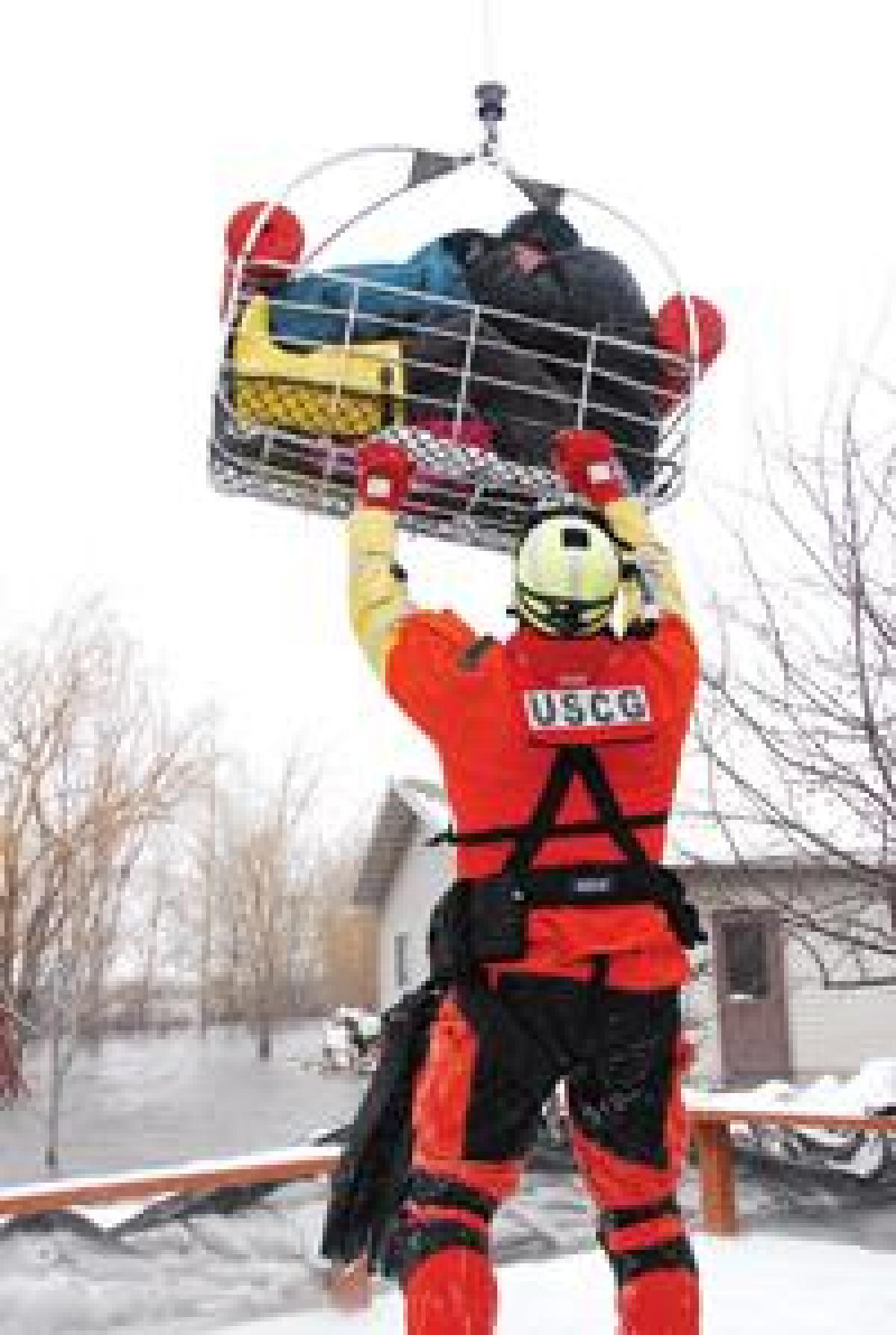If it's true that you really don't appreciate what you have until it's gone, then we could find ourselves saying that about the U.S. Coast Guard someday. Many citizens of both the United States and the world (and perhaps some of our readers), finding themselves in peril on the sea, have had occasion to look to the skies and see a helicopter in colorful Coast Guard livery heading to their rescue, or perhaps one of the service's familiar white-hulled cutters racing to the scene. Others will no doubt recall the unforgettable images of Coast Guard personnel going above and beyond to save their fellow citizens in the aftermath of Hurricane Katrina.
Unfortunately, that's probably the only time most people actively think of the service: when they're in trouble and need the kind of assistance that only America's Guardians can provide. Even though the Coast Guard is the armed service most likely to have a direct impact on the general public, especially the denizens of the nation's coastal areas, it is perhaps the most misunderstood and even underappreciated. We try to do our part to raise awareness at Proceedings, not only by featuring the Coast Guard throughout the year but also by giving the service a special spotlight every August, its birthday month. Nevertheless, it's too easy for all of us to take the nation's fifth uniformed service for granted. These men and women go about their business with a quiet professionalism and confidence, and we assume they'll always be there when we need them.
But will they?
This year's anniversary coverage kicks off with a provocative article from retired Coast Guard Captain Jim Howe and reservist Lieutenant Jim Dolbow. They warn that the service, caught in a storm of competing budget priorities, aging vessels and aircraft, and a dwindling workforce that is expected to execute missions far beyond their means could be reduced to a hollow force, the same charge many naval analysts hurl at Britain's Royal Navy. They paint a grim picture but, in true Proceedings tradition, suggest solutions, just like the Coast Guard always does. This is a strong wakeup call. If you liked Andrew Erickson's and David Yang's look at the Chinese antiship ballistic missile in May and Barrett Tillman's June warning to the Navy that it needs to be prepared to defend itself from those who wield the budgetary ax, you should find a lot to chew on here, too.
The Coast Guard's search-and-rescue role is highlighted by some of our other authors this month. Andrew C. A. Jampoler, a prolific Naval Institute historian and author, takes us back to 1978 and a particularly harrowing and deadly mission in the storm-tossed Bering Sea and the long-overdue recognition of a Coast Guard C-130 Hercules crew who directed the operation that saved the lives of ten downed Navy Sailors.
Although Coast Guard aviation dates to 1915, its rotary-wing rescue capability is a post-World War II development. Lieutenant Neal Corbin takes a look at the evolution of the service's renowned helicopter force since the early 1960s and speculates on what the next Coast Guard helicopter mightor shouldlook like.
To rally the entire force around a common purpose, Commandant Admiral Thad Allen is advocating that his Coast Guard men and women embrace a "Guardian Ethos," one that incorporates all the best physical and mental traits of service to the nation. In "To Fight and Save," Lieutenant Craig Allen Jr. details the components of the Guardian Ethos but also identifies gaps that need to bridged before it can ever work. An especially crucial one is a culture gap between those who perform mundane but essential tasks and those who risk their lives in daring search-and-rescue operations.
But America's Guardians serve not only on the home front. Since the start of Operation Iraqi Freedom in 2003, Coast Guard personnel and vessels have played an important role in the northern Persian Gulf. Atlantic Area Command historian Dr. William Thiesen chronicles the service's contributions to securing Iraqi waterways, providing port security, and assisting in mine-clearing operations.
We hope our Coast Guard coverage will give readers renewed appreciation for these brave Guardians of whom we might rarely think day-to-day, but who we're always glad to see when in distress (whether from mother nature or our own carelessness). Thanks from the Naval Institute for all you do.
Semper Paratus!



